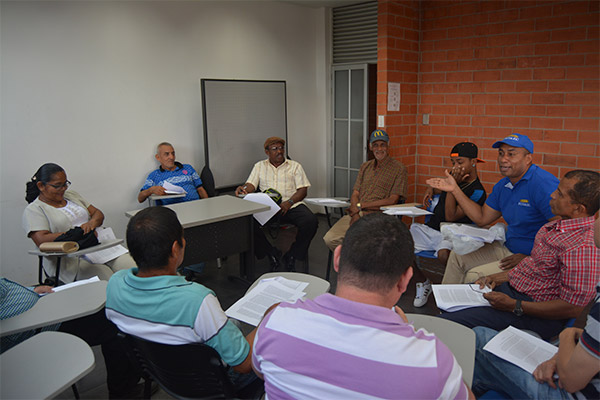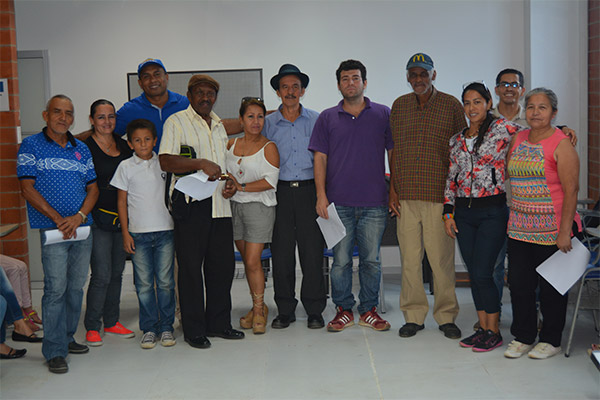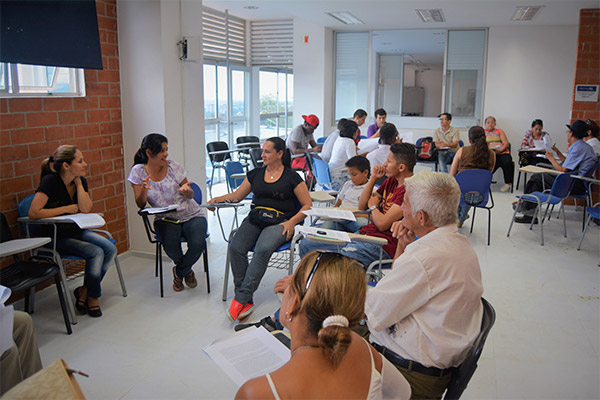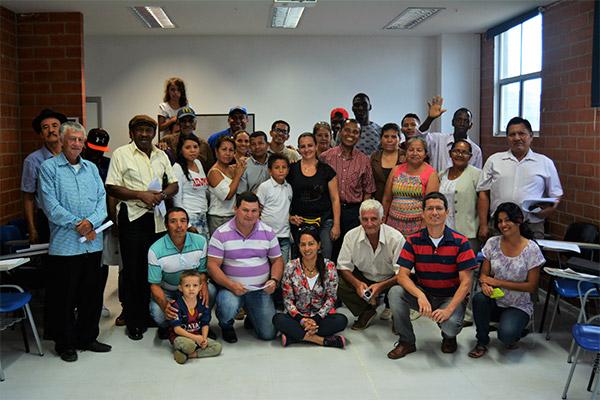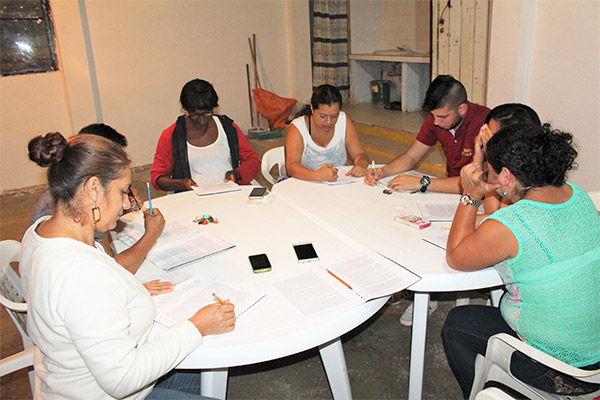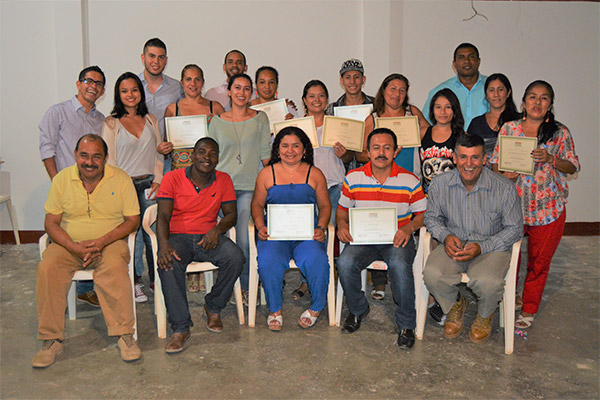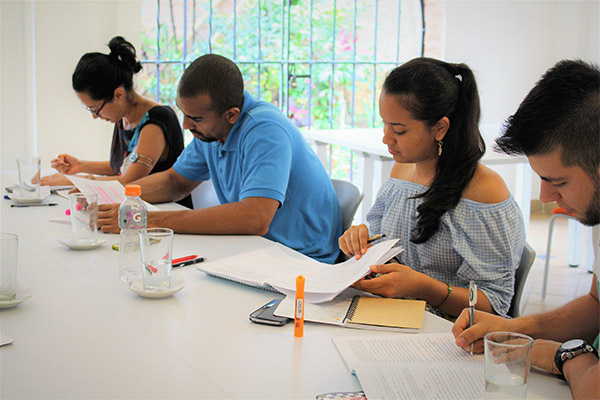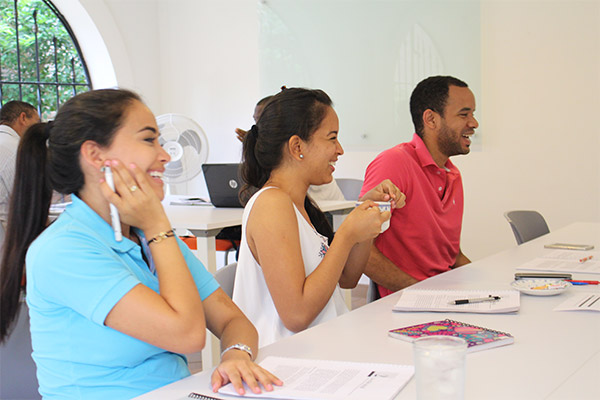Leadership and Community Development
The Leadership and Community Development program aims to learn with local leaders and organizations about leadership capacities and the design and execution of projects to resolve some of the day-to-day problems faced by communities and urban neighborhoods. Currently, the program is being implemented in Cali, where a large number of displaced people live due to the armed conflict the country has experienced over the last 50 years. It aims to contribute to the well-being of populations in neighborhoods where it works -especially children, youth and women - and address common needs, such as the appropriation of public space, increased environmental awareness, conflict resolution and the creation of environments for peaceful coexistence. The program also hopes to use comprehensive training processes for neighborhood residents and provide information about available resources. Of course, the efforts are carried out in collaboration with stakeholders involved in the neighborhoods: local government, community-based organizations, educational institutions and non-governmental organizations with similar goals.

The program has three interrelated components:
1) Creation of permanent training and consultation spaces with neighborhood leaders to study a series of workshops entitled "Reconceptualizing leadership," which promote certain capacities and attitudes in leaders that will help them become active agents of social transformation processes in their neighborhoods.
2) Design and execution of simple social action projects by grass-roots leaders and organizations in consultation with the community, through which they can influence the dynamics of the neighborhood according to their needs
3) Involvement of young university students and professionals from Cali in the peace-building process in the neighborhood.
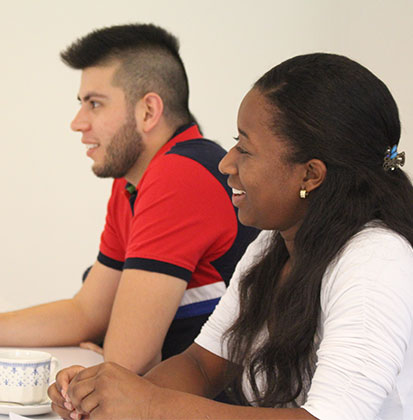


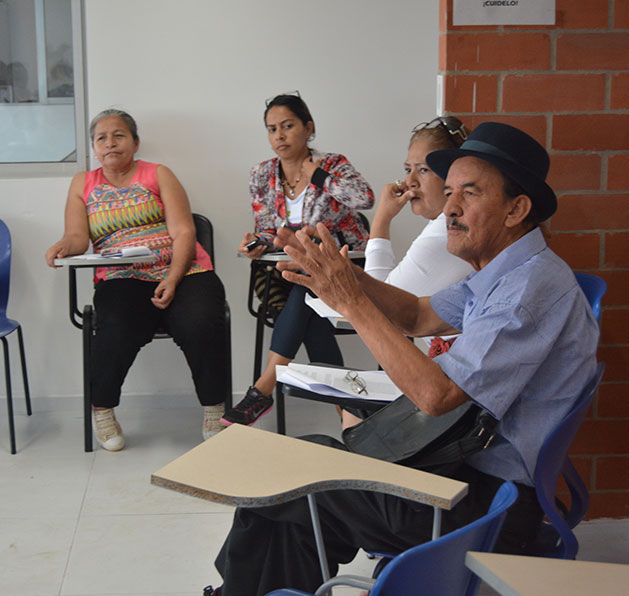
As a result of these workshops, participants have begun to see their leadership role as an opportunity to serve the community and understand the importance of developing the skills they need to exercise moral leadership in all areas where they serve. Community Action Boards (JAC) and their committees are where these workshops began, and their consultation and decision-making skills and commitment to the work have been strengthened. Collaborative relationships have been built between different Community Action Boards to support each other in the implementation of various initiatives. Several young people from the neighborhoods were involved in the workshops to ensure their participation in decision-making processes. Over time, this will bring about an adequate generational change in the membership of community-based institutions. Another clearly visible achievement of the program was the emergence of initiatives and small projects aimed at appropriating public space, educating young people, environmental conservation and urban agriculture.
A third component of the program links young university students and professionals to the process through three-month internships, which are granted to people from different disciplines who share a common desire to contribute to social transformation. The young interns study FUNDAEC's philosophy and methodology and become familiar with all its programs and operations. They work with the Leadership and Community Development program and have the opportunity to facilitate workshops and implement community projects in an urban neighborhood.
FUNDAEC believes that leadership not only concerns a small number of people in charge of directing society, but rather is a capacity that pertains to all humanity. Leadership involves individual and social transformation, and a commitment to values and moral principles based on the free investigation of the truth, inspired by a sense of transcendence and guided by a spirit of service to the common good. The two concepts that give the program its name are strongly linked to its purpose, since the redefinition of leadership promotes a series of capacities that naturally give rise to community development - understood as a process of community service, at the center of which is willingness and perseverance to learn together with others, and generate and apply relevant knowledge for the benefit of the community.

Gallery


